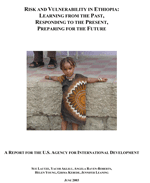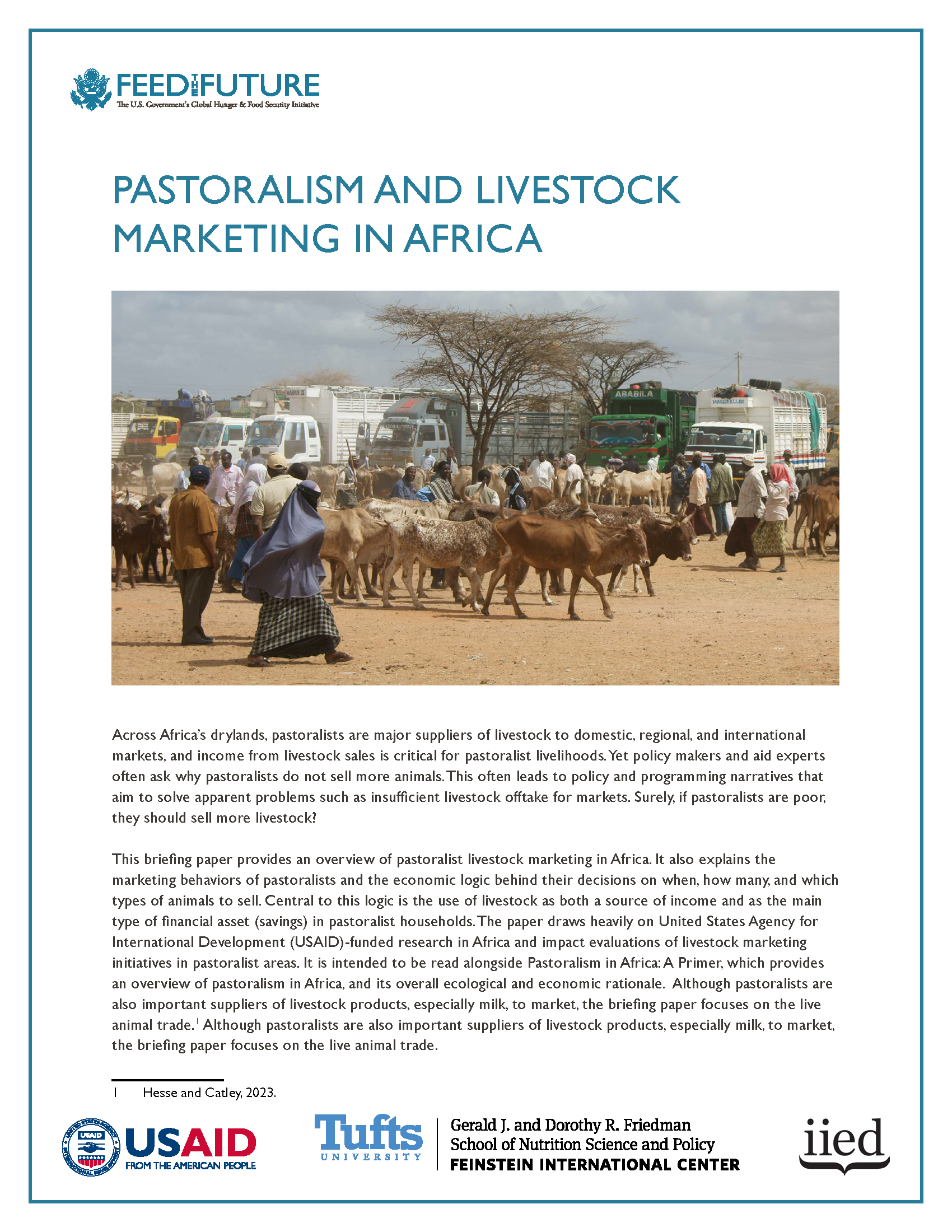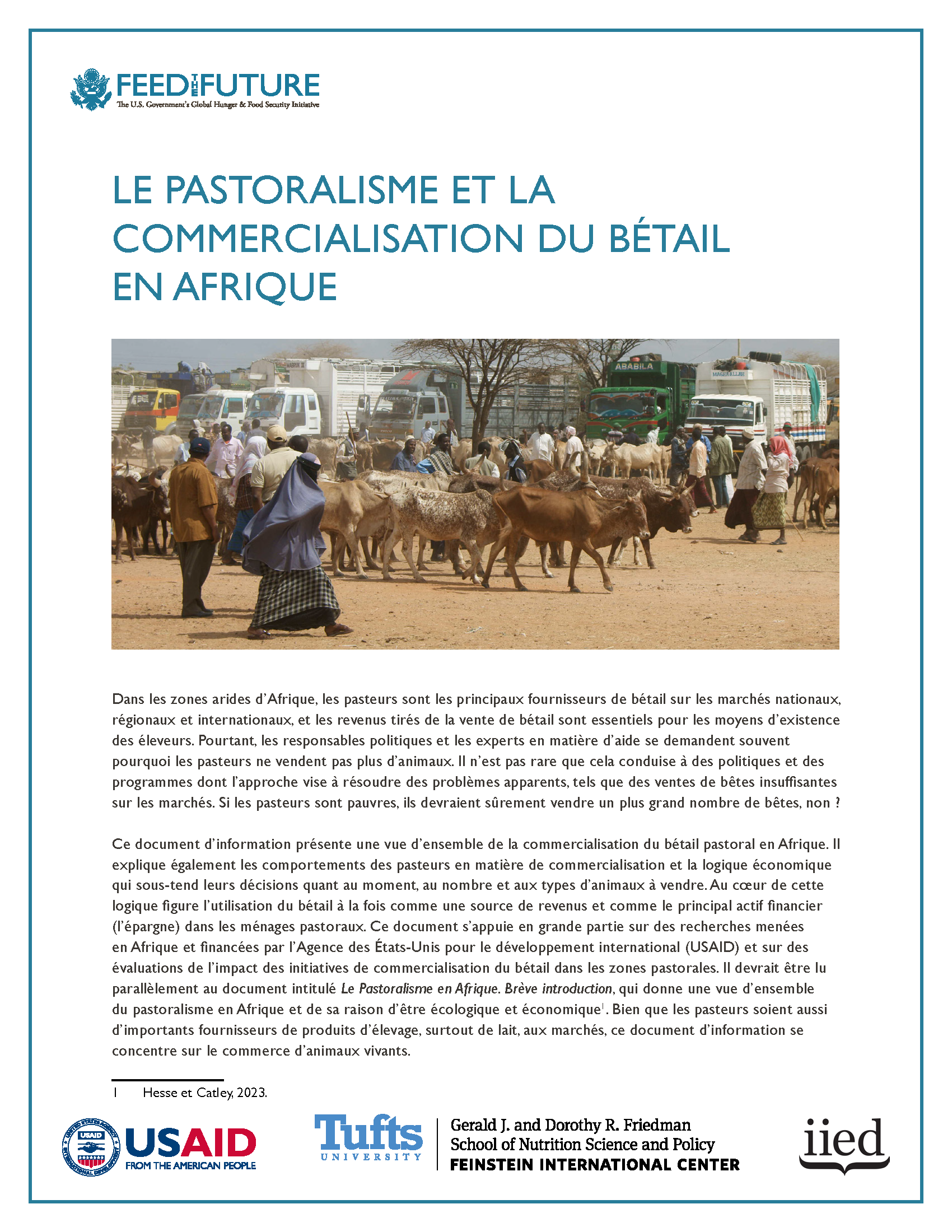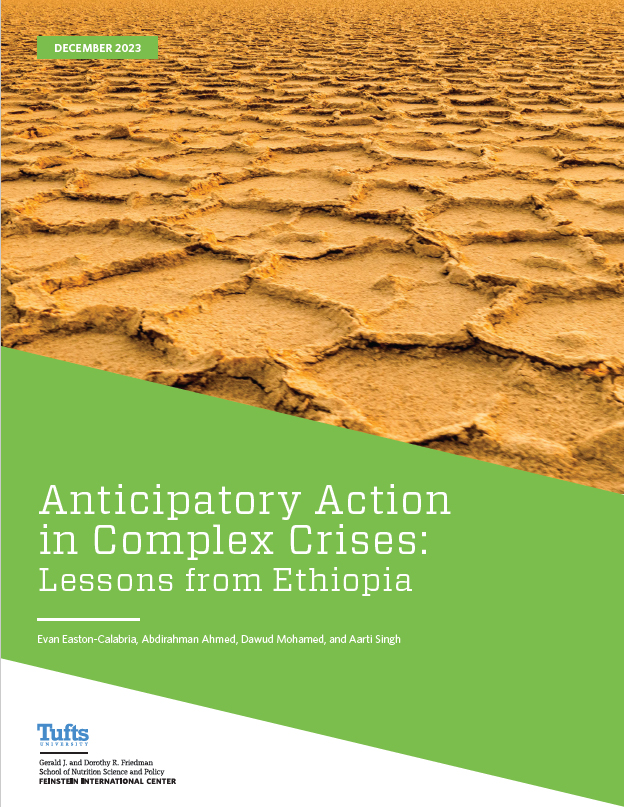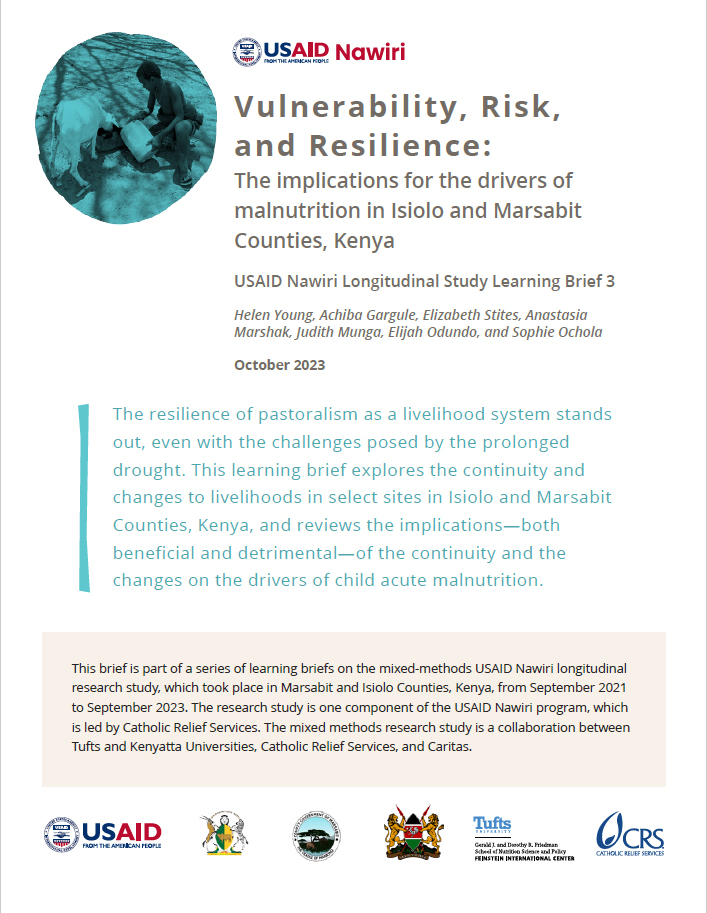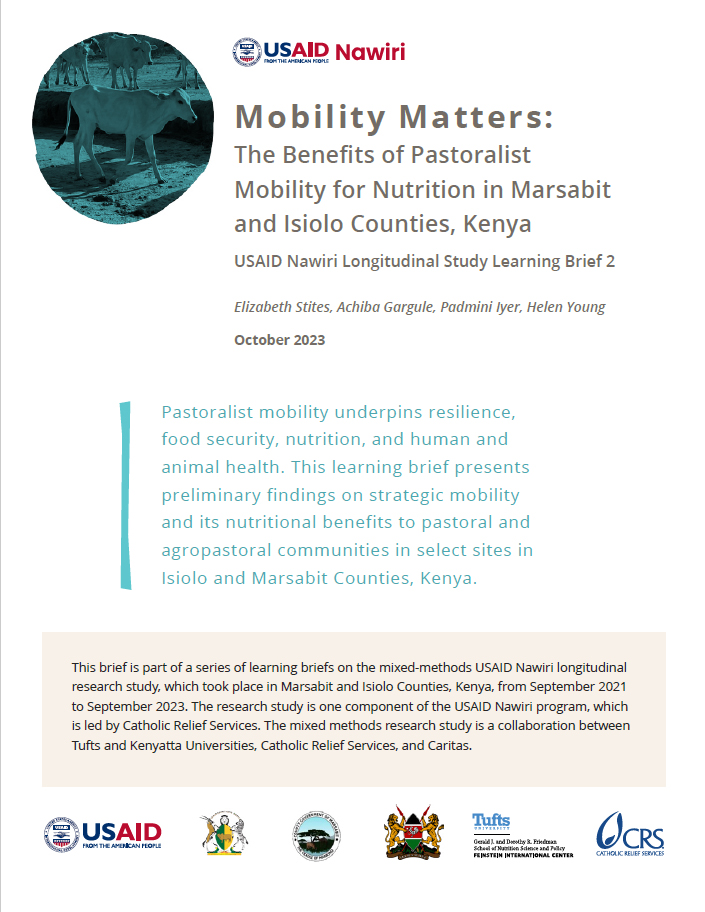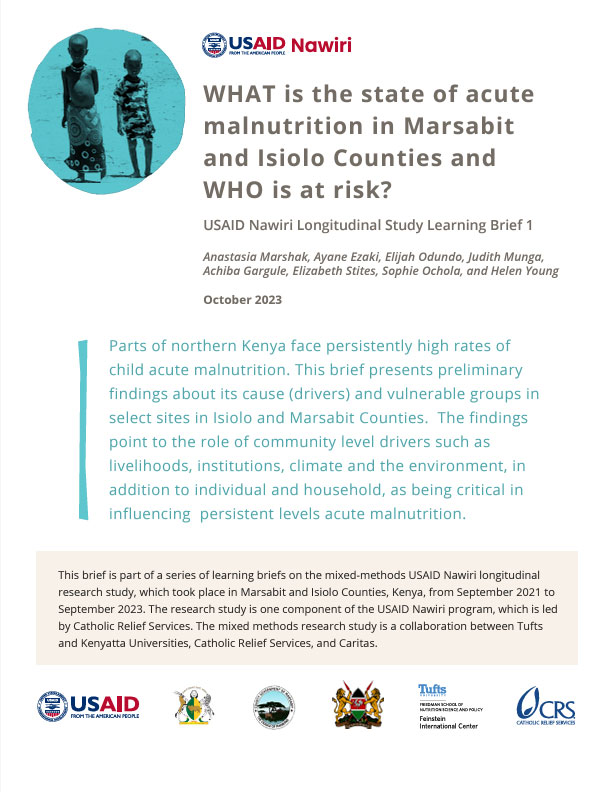The people of Ethiopia today are managing the risks and vulnerabilities generated by a serious drought, profound vulnerability to disease epidemics (human, crop and livestock), and a combination of local and international economic forces and domestic and international policies. The combined efforts of government, donors, UN agencies, NGOs and Ethiopian communities have helped vulnerable populations to avert the worst of this crisis, but alarming losses of life, emergency levels of malnutrition and crippling losses of livelihood assets have nevertheless been experienced, particularly by marginalized communities on the periphery. Much more can be done to immediately reduce the impact of the current crisis. Although predominantly considered a food crisis, vulnerable populations in Ethiopia are facing critical threats to their livelihoods, while vulnerability to morbidity and mortality is directly linked to a crisis in health care.
This report focuses on the management of disaster risks and vulnerabilities for a range of reasons. Due to the recurrent nature of crisis, Ethiopian livelihood systems have evolved to manage diverse disaster hazards, e.g. the migration patterns of pastoralists are designed to optimally manage the impact of drought on pasture and water resources; farmers seek to mitigate covariate risks through diversifying their cropping patterns; families strategically use family members to combine production with wage labor, etc. A focus on these household risk and vulnerability management strategies leads to more effective disaster preparedness, relief, recovery and prevention, and development, policies and interventions.
The USAID/DCHA Office of US Foreign Disaster Assistance (OFDA) and the USAID Mission to Ethiopia commissioned this report. Additional support was provided by a grant from the Mellon Foundation. This report is the result of a three-month process of consultations with key stakeholders, government officials and local administrators, reviews of key documents and studies, and travel to crisis affected regions (Tigray, Afar, SNNPR, Somali, Amhara, and Oromiya). Work commenced on April 2, 2003 and the final report was submitted on July 14, 2003.
The authors of this report are scholars and practitioners from the Feinstein International Famine Center, Tufts University and the Harvard School of Public Health with expertise in risk and vulnerability, public health, public nutrition, pastoralism, livelihoods, and humanitarian assistance. This study is influenced by a livelihoods perspective that focuses on community management of risk and vulnerability.

